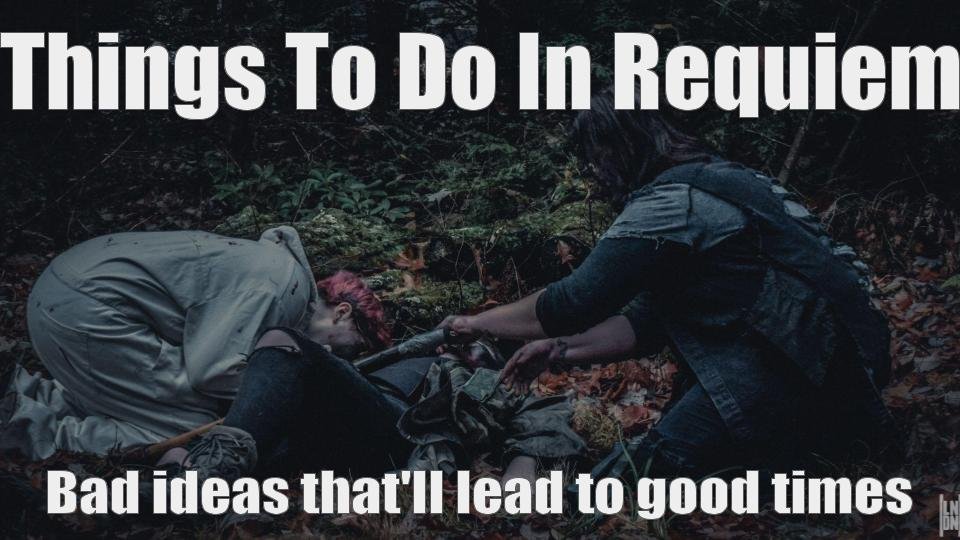Previously, we talked about your character not as a person in a story, but as a tool you use for storytelling. As larpers, our characters are precious to us, and often we identify with them strongly. However, we create them, and they aren’t real people but rather tools we use to role-play. As such, we should make sure they’re an effective tool, designed to help us have fun and perform the way we want. So how do we do that?
Read MoreServe Yourself - Self Steering
There’s no wrong way to larp… as long as you’re having fun and respectful to those around you. For the latter part - respect - we have many tools and techniques to make sure we treat other players properly. This includes the concept of “steering,” making out-of-character decisions for the sake of other players. Examples of steering include making sure you have consent, avoiding problematic or triggering role-play and purposely including other players in activities. But what about having fun? Sometimes, players should steer themselves with out-of-character decisions to make sure they have a good time.
Read MoreEnemies and Rivals
We’ve talked about Character versus Character (CvC) conflict (several times), but we never really addressed the role-play aspects of in-character rivalries. In a setting like Requiem, our focus on CvC doesn’t mean that we just have to deal with the direct conflict between characters, but the role-play of having another player character as an enemy. How do two players… who we expect to cooperate out-of-character… play bitter enemies? Here’s a few pieces of advice to help you navigate this dilemma.
Read MoreRequiem Realpolitick
The town of Requiem and the settlements of the Fold are said to be “balanced on the edge of a razor” (there’s a reason we have one in our logo). We’ve talked before about the Families of Requiem and the Treaty of the Fold, but the setting we design only matters if the players know how to engage with it. Requiem offers a distinct perspective on politics and powers, with a tremendous gulf between what is said and what is done. When playing in Requiem, remember that the setting favors “Realpolitik” versus the “Rule of Law.”
Read MoreThings To Do In Requiem
Are you a Requiem regular? A visitor who’s coming for their first time? Dystopia Rising always offers zombies to fight and friends to meet, but Dystopia Rising New York also offers a chance to delve into our setting. But setting only matters if players can use it to role-play - you need something to do. So here’s three ways to get involved in the social and political play of Requiem next game.
Read MoreCold Weather Larping
Cold-weather larping requires more work than just carrying extra socks: while larping in the heat can be rough, the cold offers unique problems that can wear you down. Huddling together in the dark can make for great role-play, but not if the player is uncomfortable or unhappy. Here’s some tips for staying warm enough to enjoy a cold-weather larp.
Read MoreConsent and CVC (Part 3)
In Part 2, we talked about explicit consent, and how it was required for fighting, theft and infection loss. But how do we signal, obtain, and confirm explicit consent? Luckily we have tools described in our rulebook to obtain them. They include negotiation, the Conflict Check-In, and the Wasteland. We also have the Survival Ethos System (SES), also called the Red Ledger.
Read MoreThe Wrong (and Right) Things To Ask a New Player
We were all new once… and many of us have been new several times. Each time you try a different larp, you’re a new player, walking into a community of people who have established connections, jargon, and traditions. As we remember how tough it can be to take those first steps, most of us do all we can to welcome new players. But how can we help? Here’s three things we shouldn’t say (and three we should) to new players.
Read MoreConsent and CVC (Part 2)
Larpers (and people in general) like hard and fast rules that apply in all situations - it makes it easy to know what is allowed and what is not ok - but not all situations are the same. In Part 1, we talked about the different groups of people who have to consent to Character versus Character (CvC) conflict but we didn’t talk about how they signal, obtain, or confirm it. The key to any of those topics is this: consent should be appropriate to the risk of the action.
Read MoreConsent and CVC (Part 1)
“Consent is critically important.” That’s what the Dystopia Rising Rulebook says about Character versus Character (CvC) conflict (page 159). However, the rulebook doesn’t discuss exactly what consent means, or how to signal, obtain, and confirm it. As consent has to be clear to all people involved, we at Dystopia Rising New York (DRNY) want to talk about how it applies to our game. To begin our three-part series on consent and CvC, we’ll focus on the different groups of people who have to consent to CvC.
Read More









